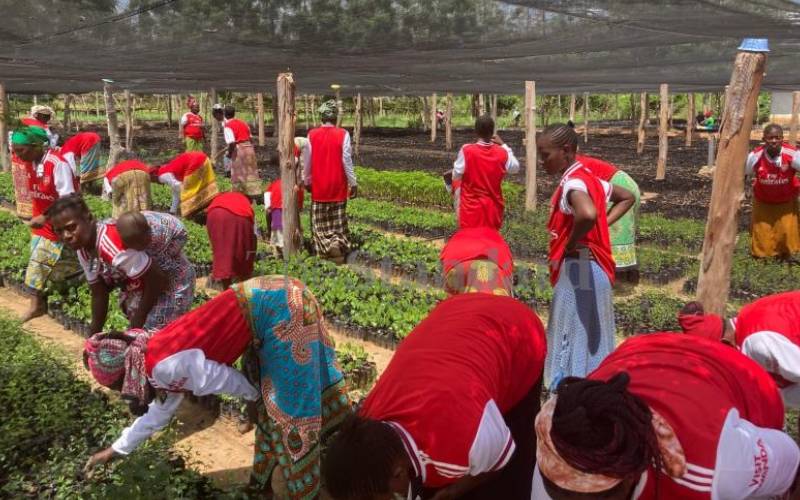×
The Standard e-Paper
Kenya’s Boldest Voice

Volunteers working on a tree nursery in Bore Singwaya village in Kilifi. [Omondi Onyango, Standard]
In recent years, professional football clubs across the world have been leveraging their visibility by spearheading philanthropic initiatives in the communities that support them.